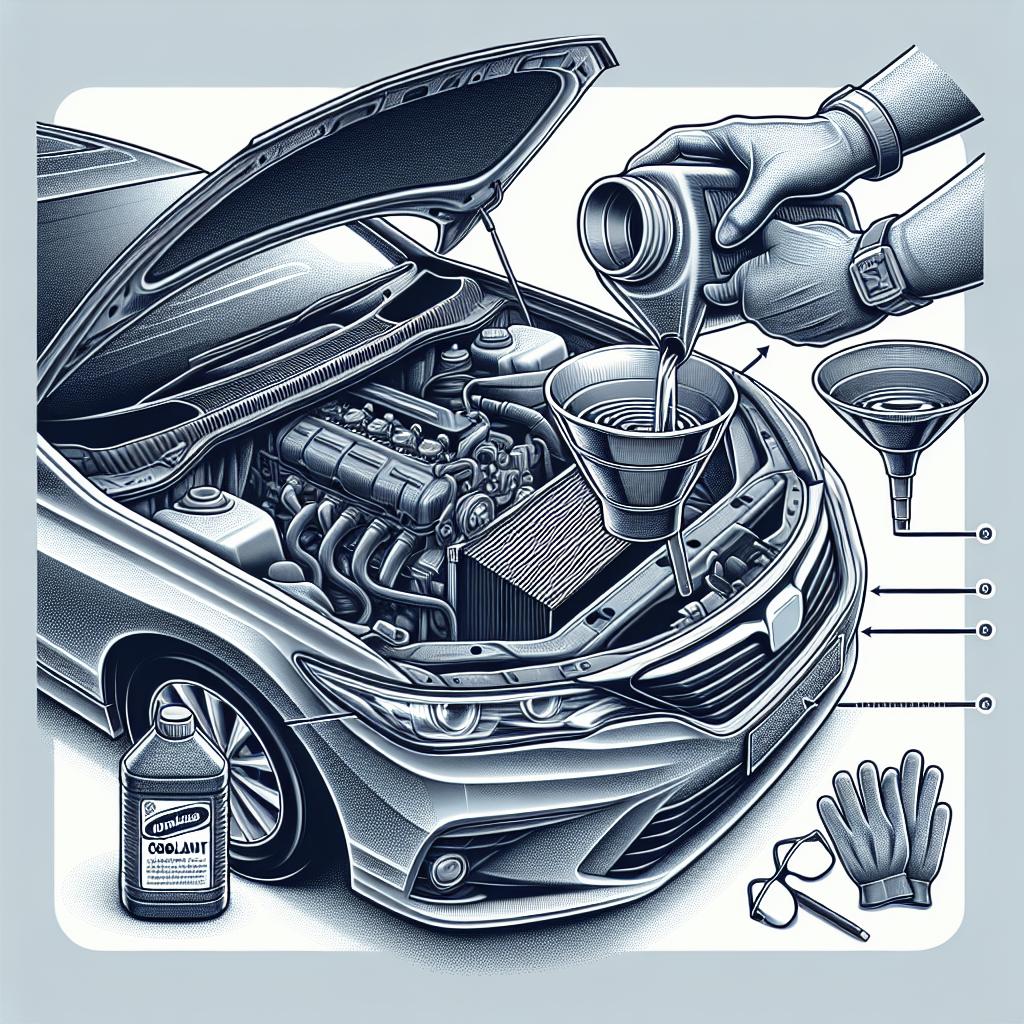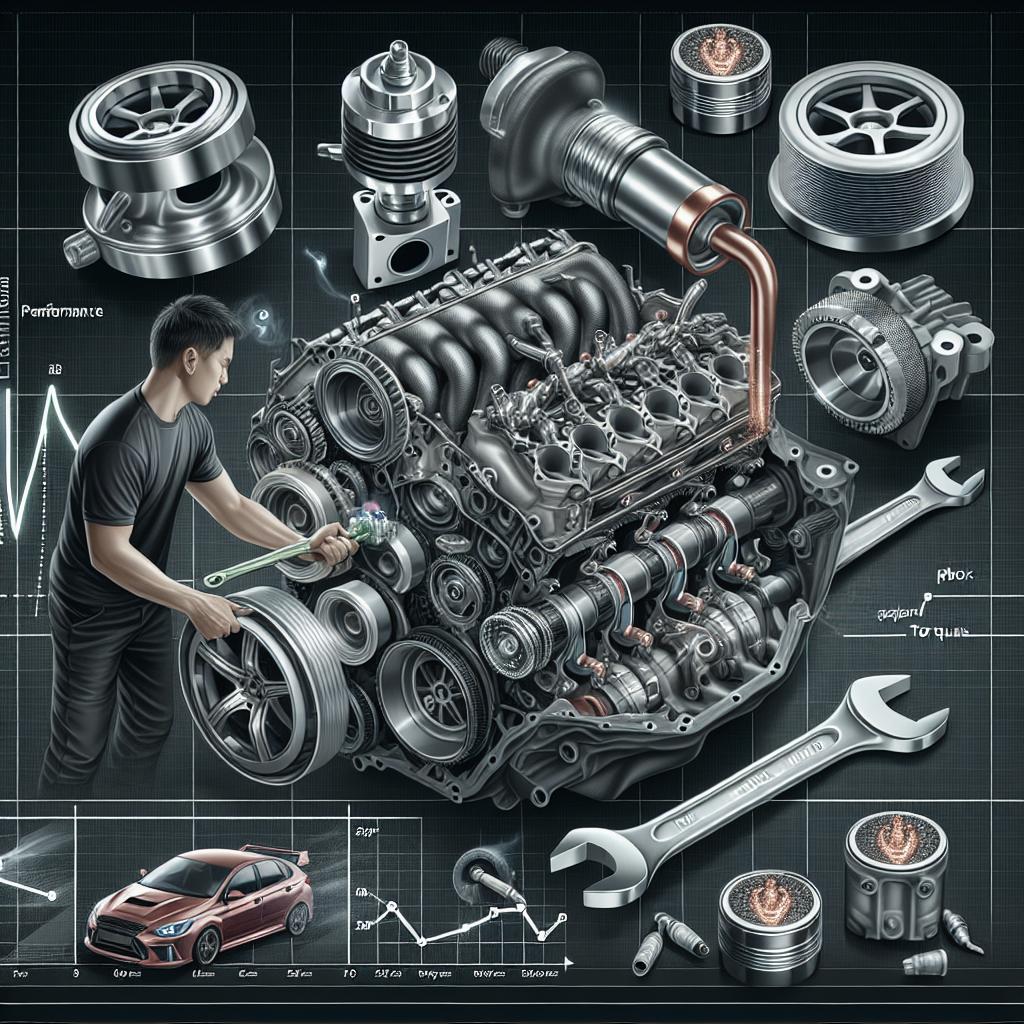“`html
Introduction
Fuel injectors play a critical role in the performance and efficiency of a vehicle’s engine. They ensure the right amount of fuel is delivered to the engine for optimal combustion. However, when a fuel injector fails, it can lead to a variety of issues that can affect vehicle performance, emissions, and fuel economy. This blog post will explore common signs of a bad fuel injector, such as the illumination of the check engine light, rough engine idling, engine misfires, failed emissions tests, and noticeable fuel odors. Being aware of these signs can help drivers take timely action to avoid further damage and ensure a smooth driving experience.
Check Engine Light Illuminates
One of the earliest indicators of a failing fuel injector is the illumination of the check engine light on your dashboard. Modern vehicles are equipped with on-board diagnostic systems that monitor various engine parameters. When a fuel injector malfunctions, it triggers a fault code in the system, prompting the check engine light to come on.
This warning light can be activated for numerous reasons, so it’s essential to use a diagnostic tool to retrieve the specific fault code. If the code corresponds to a fuel injector issue, it’s advisable to have a professional inspect and possibly replace the faulty injector as soon as possible. Ignoring this sign could result in more severe engine problems and increased repair costs down the line.
Rough Engine Idling / Stalling
A bad fuel injector can lead to rough idling or even stalling of the engine. When the fuel injector does not supply the correct amount of fuel, the engine may struggle to maintain a consistent RPM at idle, causing it to shake or vibrate noticeably. This issue can worsen to the point where the engine stalls altogether, especially when coming to a stop.
If you experience rough idling or frequent stalling, a faulty fuel injector could be the culprit. This symptom impairs driving comfort and safety, making timely diagnostics and repairs critical. A mechanic can perform a thorough inspection to confirm whether the injectors or another component is causing the problem.
Engine Misfiring
Engine misfires are another common indication of problematic fuel injectors. Misfires occur when one or more cylinders in the engine fail to ignite the air-fuel mixture at the correct time. This can happen when a fuel injector is clogged or not functioning correctly, disrupting the engine’s firing order.
Misfires are usually felt as a sharp jerk in the car, and they can lead to decreased power, acceleration, and fuel efficiency. Over time, they can cause long-term damage to engine components, including the catalytic converter. If misfires are detected, immediate attention is required to prevent further issues.
Failed Emissions Test
A vehicle’s emissions are significantly affected by the performance of its fuel injectors. When an injector is not operating correctly, it may deliver too much or too little fuel, leading to an improper air-fuel mixture. This imbalance can result in increased emissions, causing your vehicle to fail an emissions test.
Emissions tests are designed to ensure that vehicles do not emit excessive pollutants. A failed test could indicate that your fuel injectors are not functioning optimally. Repairs or adjustments made to resolve fuel injector issues can help you pass subsequent emissions tests and ensure compliance with environmental standards.
Bad Fuel Odors
If you notice a strong smell of gasoline inside or outside your vehicle, it could be a sign of a faulty fuel injector. This odor typically occurs when the injector leaks fuel onto the engine, causing it to evaporate and create a noticeable smell. It’s a safety hazard and should be addressed immediately.
A fuel leak can also lead to decreased fuel efficiency as the leaking fuel does not reach the engine for combustion. This results in more frequent trips to the gas station and increased operating costs. Addressing fuel injector leaks promptly not only resolves the odor issue but also improves overall vehicle efficiency and safety.
Summary
Understanding the symptoms of a bad fuel injector is crucial for maintaining your vehicle’s health and performance. From illuminated check engine lights to rough idling, engine misfires, failed emissions tests, and bad fuel odors, each sign points to potential issues with the fuel delivery system. Addressing these symptoms early can prevent more serious and expensive repairs in the future.
Have Questions?
If you’re experiencing any of these symptoms and suspect a bad fuel injector might be the cause, do not hesitate to get in touch with a qualified mechanic or automotive technician. They can provide further diagnostics and recommend the best course of action. In the meantime, keeping up with regular maintenance can help prolong the life of your vehicle’s fuel system.
For any questions or further clarification, feel free to reach out to us through the comments section or our contact page. We’re here to help you keep your vehicle running smoothly and efficiently!
Future Prospects
| Sign | Description |
|---|---|
| Check Engine Light Illuminates | Triggers diagnostic codes indicating a possible fuel injector problem. |
| Rough Engine Idling / Stalling | Caused by improper fuel delivery leading to inconsistent engine RPM. |
| Engine Misfiring | Uneven ignition due to faulty fuel injectors affecting engine performance. |
| Failed Emissions Test | Excessive emissions due to incorrect air-fuel mixture from malfunctioning injectors. |
| Bad Fuel Odors | Fuel leaks resulting in noticeable gasoline smell, indicating injector issues. |
“`


